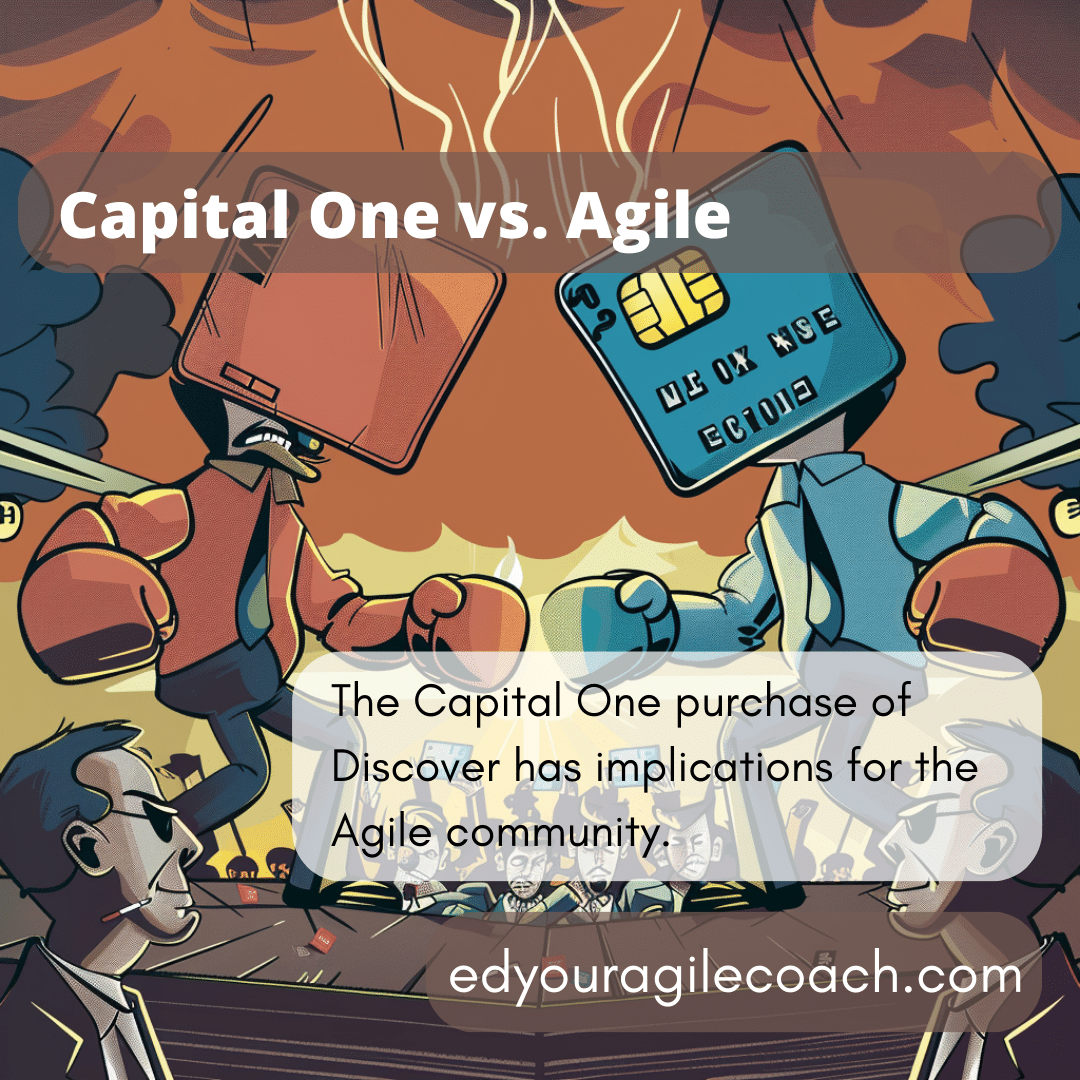Capital One's purchase of Discover and what it means for Agile.

The world of business is about two major themes: growth and profit. Companies want to increase profits or get more prominent to control more of the market. This week's big news was the merger of Discover Card and Capital One. This deal, involving the exchange of company shares, could significantly impact consumers, businesses, and people who value flexible and responsive approaches. I wanted to talk about these current events and give you some informed perspective.
When news broke of the merger on Wednesday, February 21st, I was surprised and gave a cynical chuckle to the news. It was another example of a big company growing and feeling as eventful as someone discovering water is wet. It took a few hours for the enormity of the deal and the implications to sink in. There are four major credit card companies: Visa, Mastercare, American Express, and Discover. They provide billions of dollars in consumer credit and, on average, charge 24.3% interest in the first quarter of 2024. The figure is up 4% from this same time in 2021. Compared to mortgage interest rates today, which are 7.5%, this kind of interest looks exploitative. Credit card companies claim this is necessary because credit cards are personal loans that are more risky than mortgages. Additionally, each credit card provider must accept bankruptcy judgments and suffer losses if people do not pay back their balances. These statements are accurate, but we must also acknowledge that credit card companies make billions of dollars in profits and pay millions in dividends to investors because they charge rent on consumer spending.
Capital One is a prominent provider of service to Master Card and Visa, which own the 'rails' of payments. Each time you use a Capital One card, they pay a fee to Visa and Mastercard. I am sure the CEO and board at Capital One were looking for a way to avoid those charges. For 33.5 billion in stock, they decided to purchase Discover so they could use Discover's payment rails. It is a win for Capital One but will create ripples in the rest of the economy.
First, the consumer credit card business is becoming more concentrated. With fewer competitors in the field, companies can charge higher rates and generate more profits from consumers. If consumers want to use a credit card at a lower rate, they may not have the option because fewer companies will provide credit.

Next, having separate companies managing consumer credit appears to be a sweet spot in terms of competition. When a competitor gets absorbed, prices increase because it is easier for rivals to coordinate prices. For example, you need to review the merger of T-Mobile and Sprint in 2020. After the merger, mobile phone rates increased, and 9,000 people lost their jobs. According to Vanity Fair, it did not help that T-Mobile executives shamelessly pandered to the Trump administration to allow the deal to go through before the 2020 election. It may not be outright bribery, but it sure looked corrupt.
Finally, Capital One is openly hostile to Agile working techniques. In January of 2023, they laid off over 1,000 people, most of whom were agile professionals. I suspect that the leadership at Capital One had serious culture clashes with Agile professionals who wanted to apply the values of the Agile Manifesto and development principles to a sizeable hierarchical organization. I also suspect the disruption caused by this culture clash hurt Capital One's ability to deliver for its customers. So managerial resistance and cultural issues lead to the loss of over 1,000 jobs. It is terrible news for Discover because there are plenty of agile professionals at their corporate offices, and the new bosses at Capital One will see them as waste. I suspect Capital One plans to fire agile professionals first when the deal becomes official, unfortunately causing a difficult job market for them. While I don't take pleasure in this, it will undeniably complicate the hiring process for agile professionals.
The merger may be suitable for Capital One, but we should prepare for some unexpected consequences for those relying on its services.
Until next time.

Take with a grain of salt but the merger is going to face serious scrutiny.





Comments ()